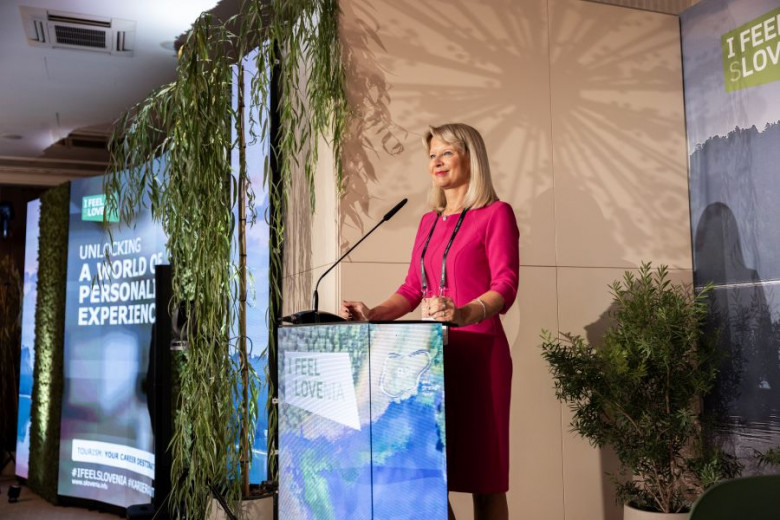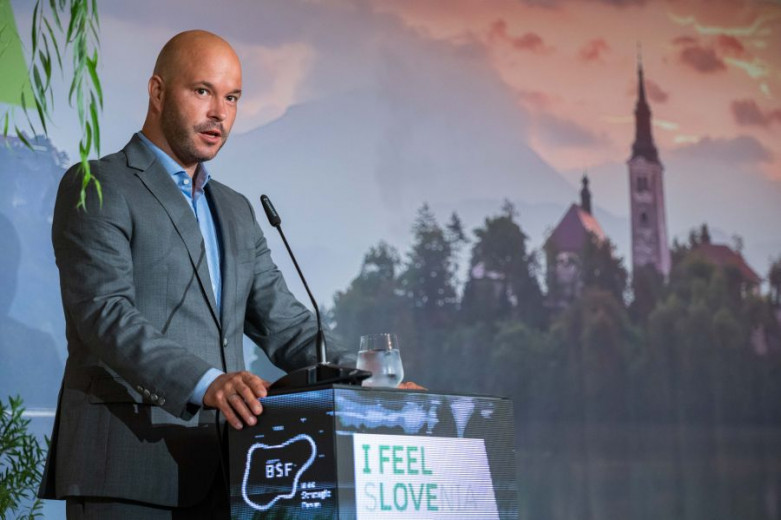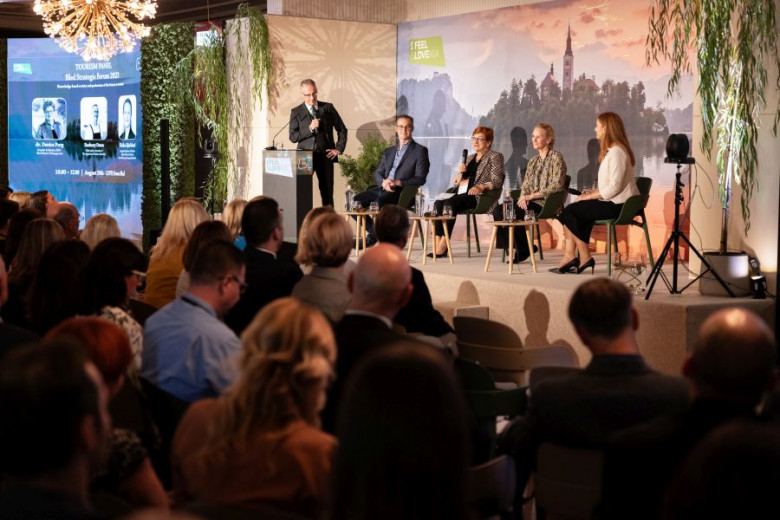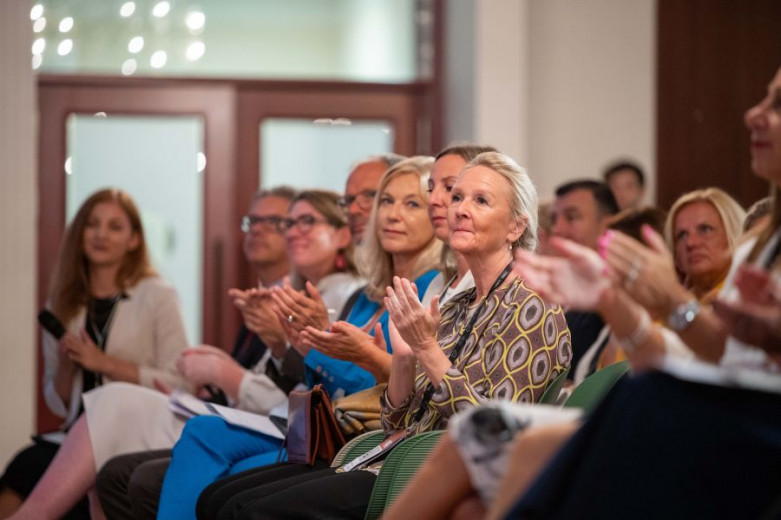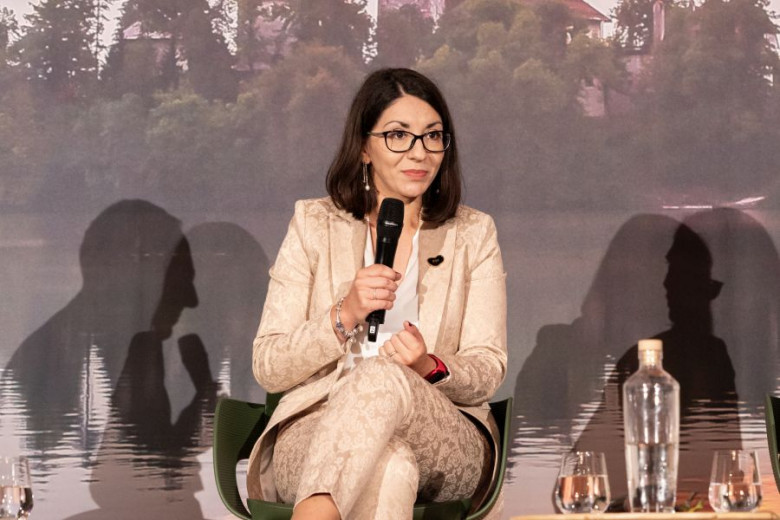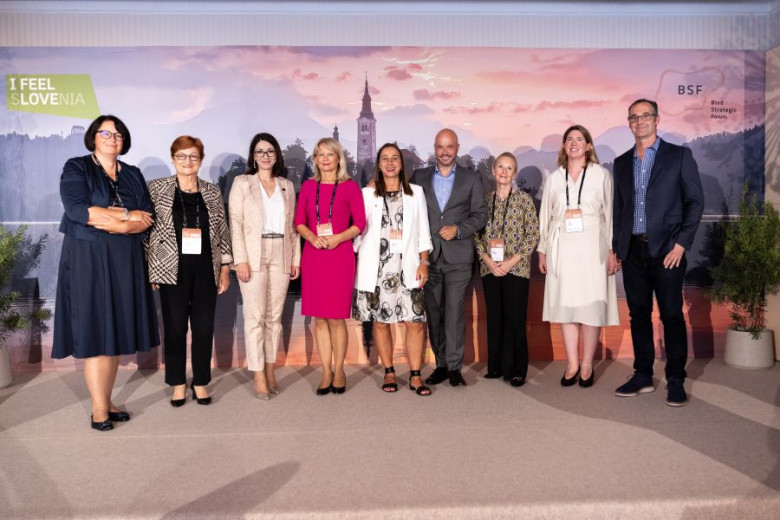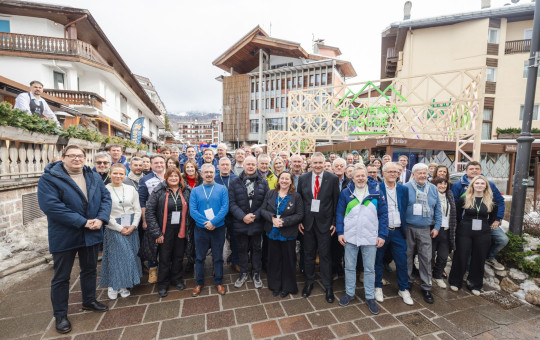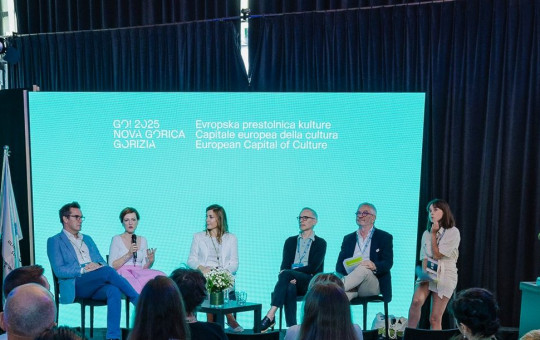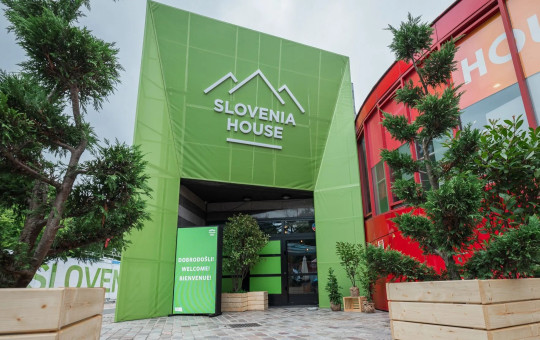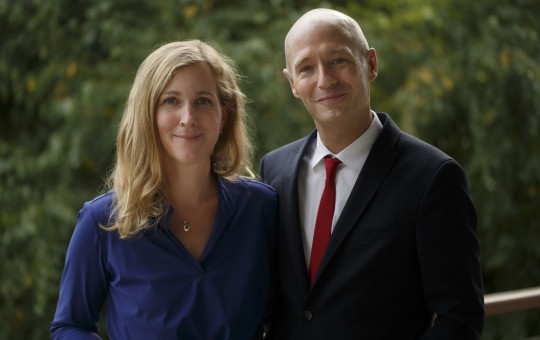Date: 30. August 2023
Time to read: 2 min
The evolving labour market poses a vital challenge for the tourism sector: How to equip the workforce with the skills demanded by the future? Esteemed speakers explored this topic during the 9th Tourism Panel at the Bled Strategic Forum.
The tourism sector creates many jobs while nurturing values like hospitality and meaningful human interactions. Simultaneously, the sector has faced a long-standing challenge of a global shortage of suitably skilled labour. The future landscape of tourism professions is shaped by environmentally conscious and digitally driven roles. Industry entities seek professionals with exceptional expertise and highly developed soft skills.
In this era of information, knowledge stands as a vital catalyst for economic growth and social progress. Despite this, the allure of working conditions within the tourism domain often falls short. How can the industry appeal to young talents? And how can existing employees be equipped with enhanced skills and encouraged to stay?
Undoubtedly, the swift progress of technology will significantly influence work in tourism - some roles will evolve, others will be replaced, and fresh opportunities will emerge. During the BSF's tourism panel, these key questions were adressed by distinguished domestic and international experts.
Matevž Frangež, State Secretary at the Ministry of Economy, Tourism and Sport, emphasized Slovenia's strategic dedication to sustainable tourism and also highlighted the vital role of individuals in tourism. He described working in tourism as "one of the most rewarding missions one can imagine".
Maja Pak, the Director of the Slovenian Tourist Board (STB), underlined in her opening address that labour shortages present one of the biggest challenges for the tourism sector, alongside the pressing concern of climate change, which has led to increasingly severe weather patterns. "By 2030, millennials and Generation Z will compose nearly two-thirds of the global workforce. Their digital expertise, entrepreneurial mindset, appreciation for cultural diversity, commitment to sustainability and the environment, along with elevated expectations of corporate and organizational social responsibility and adaptability, can significantly enhance the competitiveness of the tourism sector. Meeting these generations' anticipations demands from the tourism employers to be prepared. The challenge is not solely to attract young talents to the industry but also keep, upskill, and empower existing employees. While propelling the digital transformation of tourism is imperative, we must know that, amidst the advantages of rapid technological progression, people should remain central to tourism, as well as to the broader concept of modern sustainability," she noted.
-
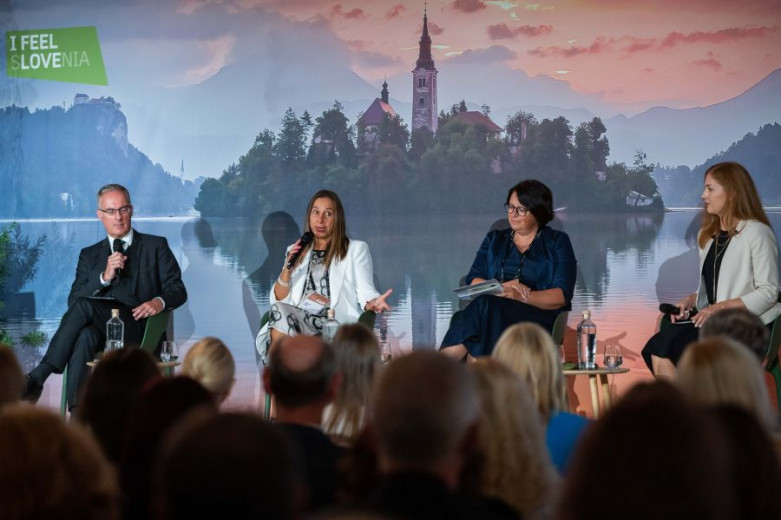 Igor Evgen Bergant, Alessandra Priante, Director of the Regional Department for Europe at the World Tourism Organization (UNWTO), Dubravka Kalin, Director General of the Directorate for Tourism at the Ministry of Economy, Tourism and Sport and Martina Gojkošek, Head of Corporate PR at the STB. Photo: Bled Strategic Forum
Igor Evgen Bergant, Alessandra Priante, Director of the Regional Department for Europe at the World Tourism Organization (UNWTO), Dubravka Kalin, Director General of the Directorate for Tourism at the Ministry of Economy, Tourism and Sport and Martina Gojkošek, Head of Corporate PR at the STB. Photo: Bled Strategic Forum
The discussion focused on three key aspects. The institutional dimension was thoughtfully explored through a guided dialogue between Alessandra Priante, Director of the Regional Department for Europe at the World Tourism Organization (UNWTO), and Dubravka Kalin, Director General of the Directorate for Tourism at the Ministry of Economy, Tourism and Sport. Alessandra Priante stressed Slovenia remained a safe destination for tourists post-floods. Highlighting the importance of continuity in the tourism sector, Priante also addressed the issue of personnel and suggested that it is foremost communication that needs to be improved. Dubravka Kalin acknowledged the challenges of working in tourism. "Being part of the tourism industry is like being a gladiator. It's demanding work, and you need to truly love the sector not just to survive, but to feel good about one's work," she noted.
The educational perspective was illuminated by Dr. Danica Purg, Founder and Director of IEDC - Bled Business School, Ulrika Björklund, CEO of Swiss Education Group, and Rodney Dunn, chef and co-founder of The Agrarian Kitchen restaurant and cooking school.
Björklund noted the importance of balancing theoretical and practical knowledge and of sharing success stories, so that young people can understand the immense potential within the industry. Purg also spoke of the need to help those working in tourism to become more innovative, creative, and equipped with digital skills. Rodney Dunn, culinary expert and founder of The Agrarian Kitchen in Australia, highlighted that the challenges facing tourism are global, not exclusive to Europe or Australia.
Delving into the impacts of the technological transformation, insights were shared by Dr. Emilija Stojmenova Duh, Minister for Digital Transformation, and Marie Audren, Director General of the European Association of Hotels, Restaurants, Cafés, and Nightclubs (HOTREC).
Emilija Stojmenova Duh also touched on digitalisation. She said the ministry is focusing on securing adequate infrastructure that benefits tourism as well. "It's a challenge, as it's quite expensive to provide internet access to every mountain and valley," she said.
Marie Audren, director general of the European Hotel, Restaurant, Cafe, and Nightclub Association, echoed the theme of digitalisation, agreeing that while digitalisation can contribute to tourism development, it won't be a complete solution. Jobs won't disappear, but they will change, she said.
A recording of the tourism panel is available on youtube.com.
Source: Slovenian Tourist Board, Slovenian Press Agency

